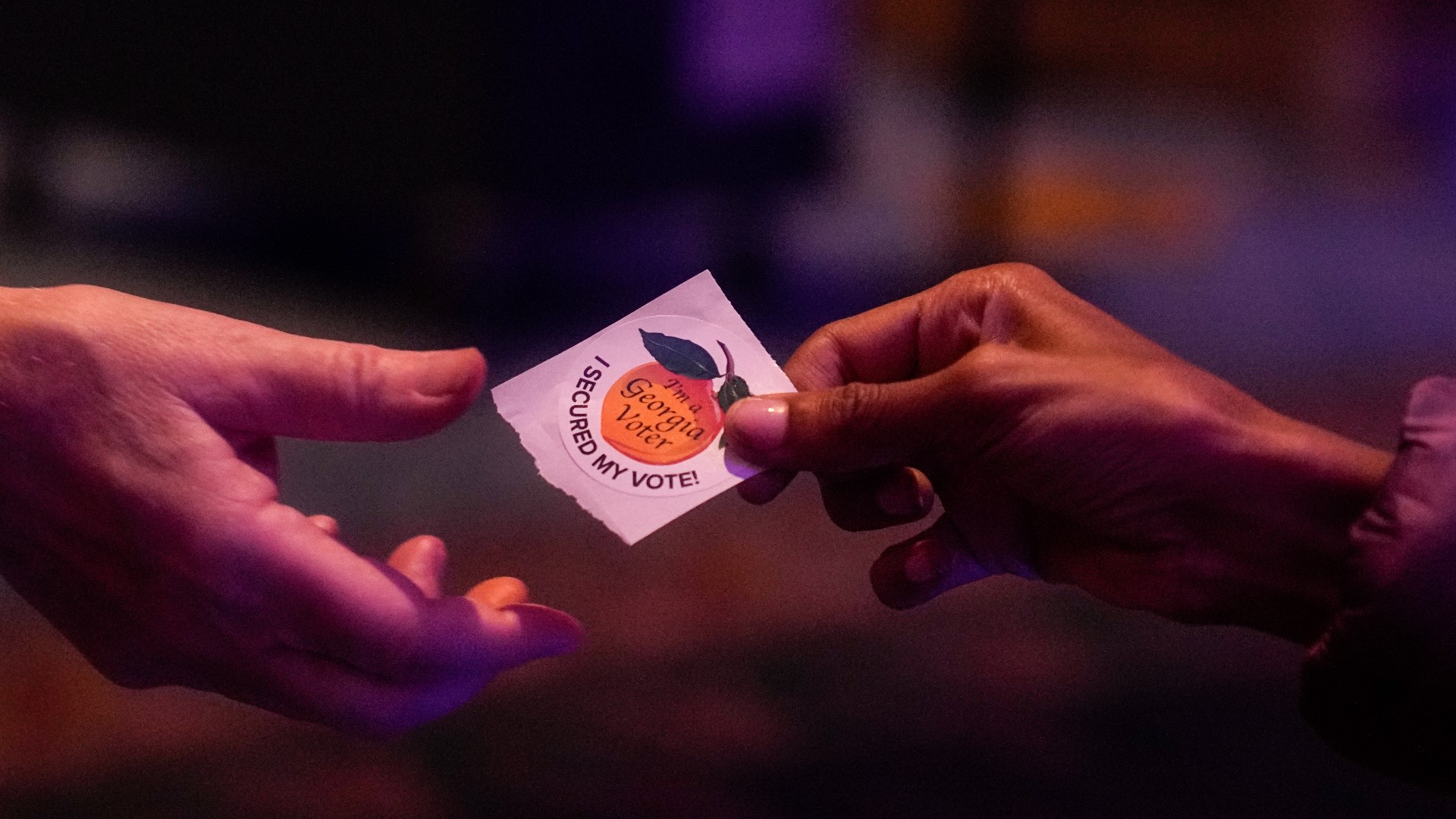ATLANTA — Election Day has come and passed for most of the country, but for Georgia, there's still another month of campaigning, ads and - yes - one more trip to the polls.
The Senate race between incumbent Democrat Sen. Raphael Warnock and Republican challenger Herschel Walker presented no clear winner on Election Night and is headed to a runoff, NBC projected.
Georgia Secretary of State Office Chief Operating Officer Gabriel Sterling tweeted early Wednesday morning that "while county officials are still doing the detailed work on counting the votes, we feel it is safe to say there will be a runoff for the US Senate here in Georgia slated for December 6."
One of the candidates would have had to meet the 50% + 1 vote threshold to secure an outright victory and avoid a runoff - and returns strongly suggest neither did.
What is a runoff election?
In some states, winners are determined by a plurality - or whoever has the highest amount of votes wins. In these cases, the candidate does not have to win an outright majority to be elected.
Here in Georgia, however, in order to be declared the winner in an election, a candidate must receive at least 50 percent plus one vote. If that does not take place, under Georgia law, the race automatically goes to a runoff between the top two vote-getters.
A runoff, then, is another chance for voters to cast a ballot in order to determine a winner.
Why do runoffs exist in Georgia politics?
According to a 2014 analysis by the Washington Post, runoffs are a vestige of a time when white Democrats controlled Southern politics and manipulated election rules to remain in power.
The Post article quoted University of Georgia political scientist Charles Bullock, who said that in the days when the Democrats were the only party in town, the runoff was often the "determinative election." Often, in those days, Bullock said, there were "more people participating in the runoff than in the original primary."
According to the Post's article, the runoff system was used, along with literacy tests, poll taxes, and other hurdles, to keep African Americans away from the ballot box.
In recent years, Georgia is one of seven states - along with Alabama, Arkansas, Mississippi, Oklahoma, South Carolina and Texas - where runoffs are required if a single candidate does not receive at least one vote beyond a 50 percent threshold in a primary election. In two other states, the bar is even lower: 40% in North Carolina and 35% in Louisiana. South Dakota and Vermont have very limited instances in which they use runoffs, according to Ballotpedia.
However, Georgia is one of only two states, according to the non-profit Ballotpedia, to use runoffs to decide general elections if a candidate doesn't earn a majority of the vote. Louisiana is the other state.
Historically, though, runoffs are significantly harder for Democrats to win in Georgia, as it is a steep uphill battle to re-galvanize a base that just voted and campaigns may have already exhausted funding needed to continue operations.
When is the Georgia runoff election?
Dec. 6 will be the official date for this year's runoff election. However, there will be early voting days starting as soon as possibly Saturday, Nov. 26, depending on whether counties do weekend voting in the early voting period, which will otherwise begin on Monday, Nov. 28 according to state officials. There will only be one week of the early voting period.
Voters can request an absentee ballot for the Senate runoffs now; those ballots won't be sent out in the mail, though, until after Nov. 18.
Counties should publish the hours and locations soon, but that will also be available on the Secretary of State's My Voter website.
Who can vote in a runoff election?
Anyone who is registered to vote in Georgia can vote in state, local and federal runoff elections. Even if you did not vote in the general election, you could vote in the runoff.
If you've already registered with the state, you don't need to register again - though it doesn't hurt to check your status on the Secretary of State's My Voter website.
Sadly, if you were not registered by Nov. 7, you will be unable to vote in the runoff election, according to the Secretary of State Office.
How to vote in a runoff election
Voters have the same options to cast a ballot that they did in the general election. They can vote by an absentee ballot, vote during the early-voting period, or vote in person on election day.
Early voting begins the 4th Monday before the runoff election date.
If you requested an absentee or mail-in ballot for the general election and you checked that you are elderly, disabled or voting from overseas, you should receive a ballot automatically for the runoff.
If not, you must fill out another absentee ballot application form (you can even do it online) and return it to your county elections office by mail, fax or in person - even if you voted absentee in the Nov. 8 election.
Drop boxes will be available again for voters to submit their ballots.

